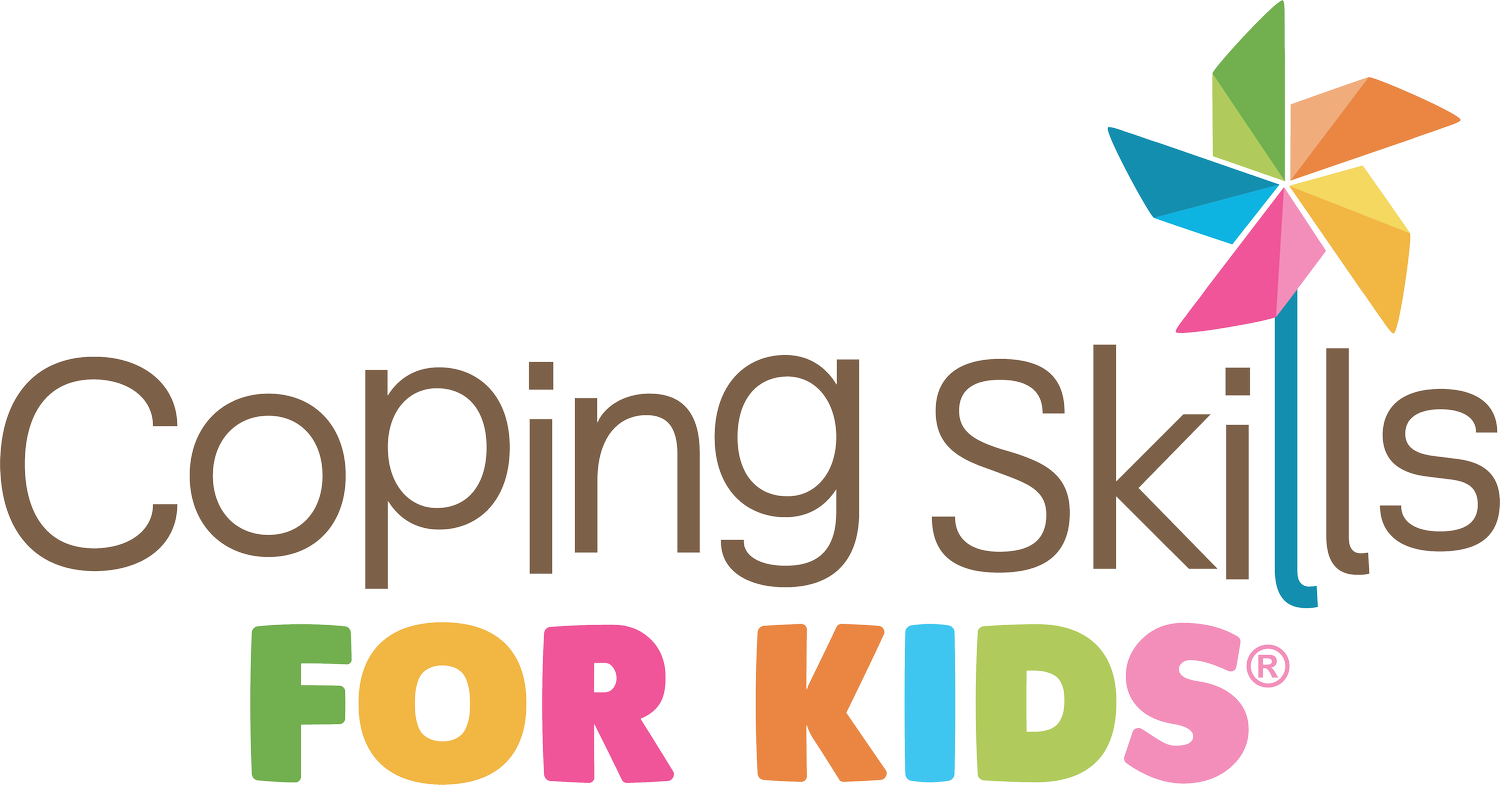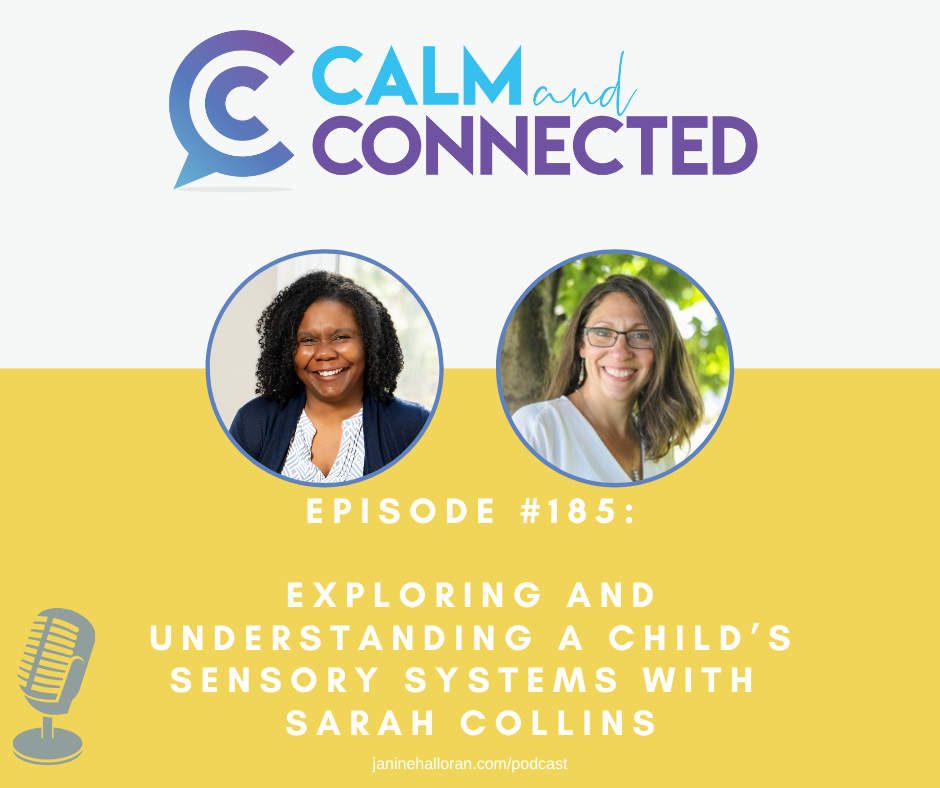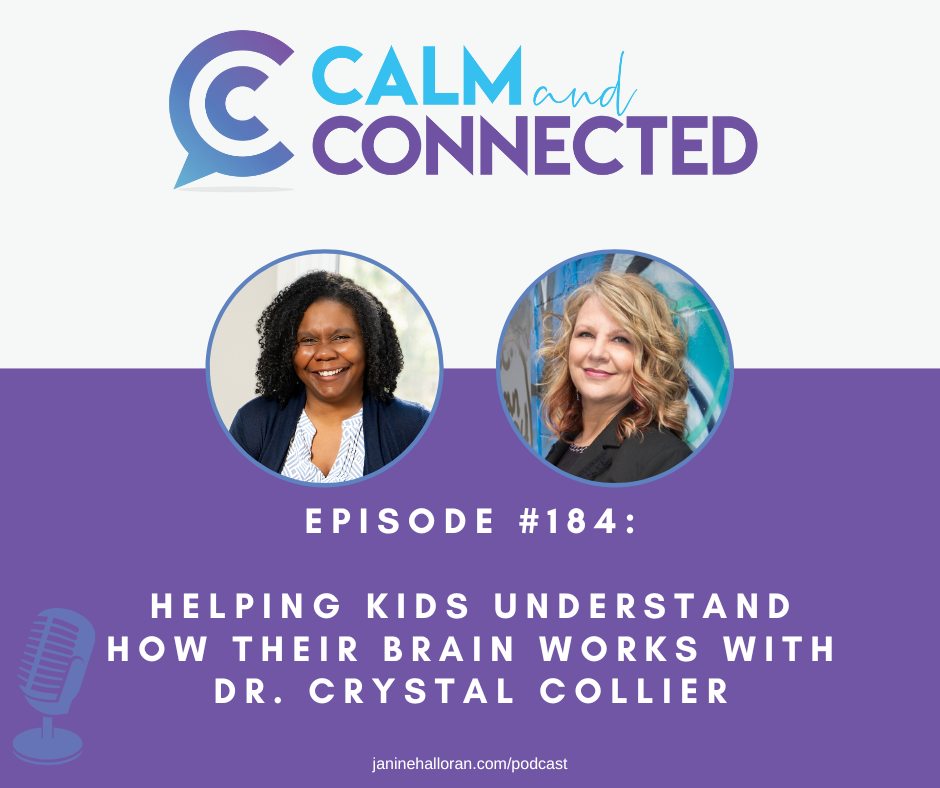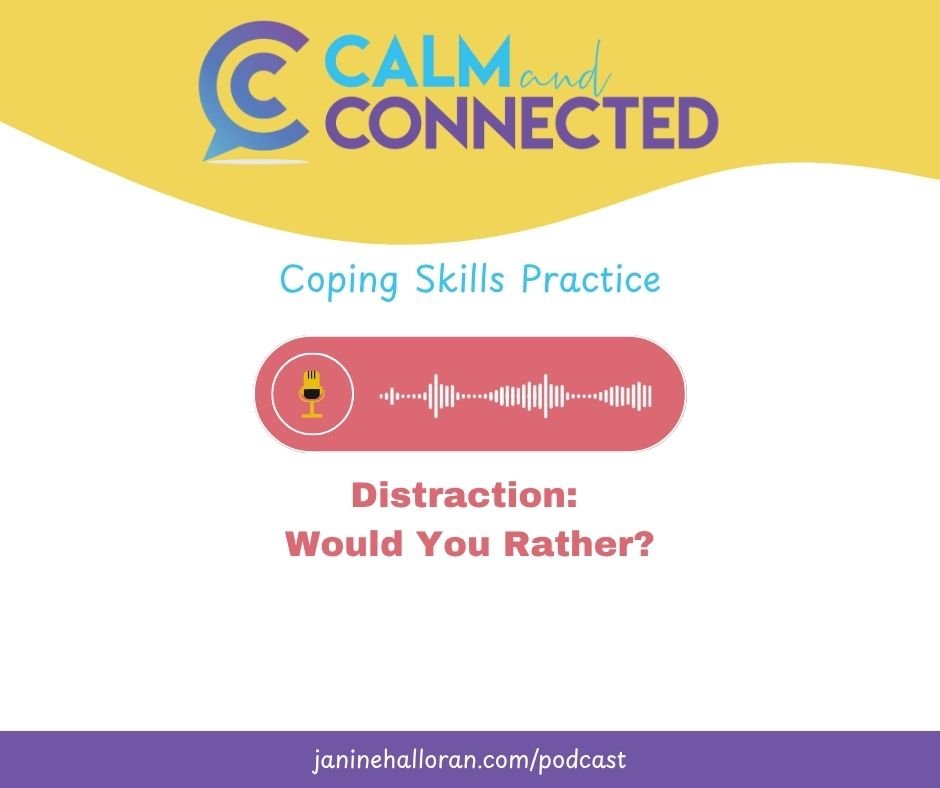Inside: An introduction and overview to Coping Skills for Kids, including ideas, resources and products available.
I’m Janine Halloran, a Licensed Mental Health Counselor, an Elementary School Counselor and a mom of two elementary school aged children. Over the last 15 years, I’ve worked with children around managing big feelings and emotions. Early in my career, I realized the importance of making sure my clients have healthy coping skills. Whenever I work with someone, my goal is to make sure they end up with a variety of healthy coping skills they can use every day.
As a parent, I’ve also learned first hand about how to teach coping skills as I’ve been raising my own children. My son is slow to warm up in new situations and with new people and sometimes has a hard time managing his BIG feelings.
Who could use coping skills?
The tired preschool boy, just home from a busy day at school.
He’s a little sleepy and a little hungry. He asked to play with blocks when he got home and you helped him get them out. Suddenly, he growls “argh!!!!” and a block tower goes crumbling to the ground. “It’s not working!!” he says with tears in his eyes and frustration in his voice. Suddenly, a block bangs off the wall - thrown by your frustrated little guy.
The 8 year old girl, anxious about her science test.
She thinks she’s going to fail, and she worries that you will be disappointed in her and she’ll lose her privileges of playing with friends and screen time. She studies and studies, but as soon as the test is in front of her, her mind goes blank. Her palms sweat and her cheeks flush. “Why can’t I remember?!” she thinks to herself.
The 10 year old boy, whose parents are getting a divorce.
Why did it have to change? he wonders. “I hate changing houses. I always forget something!” He misses how it used to be. “What will happen to me?” His parents keep asking him to talk, but he doesn’t want to.
The 7 year old girl, worried about her sick grandma.
In the middle of her math lesson, her mind wanders to her grandma. She went to visit her this past weekend. She’s concerned about her grandma’s surgery. “I hope the surgery goes okay. I wonder when grandma will be home?”
Benefits of Coping Skills
Everyone needs to be able to cope with life’s emotions and stresses in healthy ways. Childhood is a wonderful time to learn to cope with and manage life’s ups and downs. If children have good coping skills, they will:
get along better with others
more easily make connections to others
be able to start and maintain friendships
be able to pay attention in school and learn
manage better when more challenging experiences occur
be more resilient as an adult
Sometimes, children need more explicit instruction to help figure out what works for them and what doesn’t. Or maybe they’re experiencing an incredibly challenging period of their life and need to add more coping skills to their repertoire to adapt.
It might be hard to figure out what to do and how to help your child manage their big feelings, so I wanted to create a place with resources to help make this easier.
Creating a list of Coping Skills
It’s important to have several different coping skills that you can use in a variety of settings. Different types of coping skills will work at different times. For instance, if your child’s coping skill is putting his head down and closing his eyes for a few minutes, that works great at home. But if he’s in the middle of English class, that will probably not go over too well.
Also, if your child is sad about something, maybe a physical coping skill isn’t helpful for him at that time. A processing skill might be a better choice.
It’s also important to try coping skills before passing on them. You never know what will resonate with your child. What doesn’t work at one time may work at another. Encourage your child to give any coping skill a try at least once.
How can you help your child? Here are some ideas!
Coping Skills in Action
The tired preschooler
Speak with him in a calm and gentle voice. “You seem frustrated. Do you want to jump on your trampoline for a few minutes while I get your snack ready? Then I can help you build your tower.”
The 8 year old girl, anxious about her test.
Reassure her that you will always love her, no matter what kind of grade she gets. Talk with her and have her imagine a calm place. Talk about all the details, what she sees, what she hears, what she feels and what she smells. Then have her imagine it for a few minutes while taking deep breaths. Explain to her that she can call up that calming place whenever she feels stressed, like during a test, to help get her to a calmer place.
The 10 year old whose parents are divorcing.
Offer him a journal where he can write his thoughts, his questions, his feelings and his frustrations. It will help him think and process more of what is happening. And you can tell him that any time he wants to talk, you’re here to listen
The 7 year old who is worried about grandma
Sometimes, it helps to do something to take your mind off tough situations, especially when there is really nothing to do but wait and see. Talk with her about doing something kind. Maybe she could make her grandma a craft or a special treat. It can keep her busy and occupied as she’s waiting for news about her grandma.
With coping skills, children can learn to manage difficult emotions and gain resilience. This will serve them well as they continue and grow and face more difficult challenges.
I’m always adding more items to this website. If you have any ideas or topics you’d like covered, please contact me at info at copingskillsforkids dot com. I’d love to hear from you!
At Coping Skills for Kids, you'll find...
Resources to Help Teach Kids Coping Skills:
Deep Breathing Exercises for Kids
Free Downloadable Products
Here you’ll find all the free digital products that you can download and use immediately when working with children. There’s a coping skills checklist to help get you started on creating and establishing your child’s list of coping skills. There are also deep breathing printables to help teach children how to take deep breaths and a feelings thermometer.
Coping Cue Cards Discovery Deck
The Coping Cue Cards Discovery Deck is a deck of cards designed to help kids learn healthy coping skills. The Coping Cue Cards Discovery Deck has 40 coping skills cards with simple strategies children can use to cope with stress, anxiety, and anger.
The deck is sorted into 5 Coping Styles: Relaxation, Distraction, Movement, Processing, and Sensory.
There are so many ways to use the discovery deck: to help kids identify which coping skills work for them, as a visual reminder to use a coping skill, or as a way to find new coping skills to expand their toolbox.
The deck brings order to the mountain of ideas for coping strategies that work for kids and is designed to work at both school and home.
The Coping Skills for Kids Workbook
The Coping Skills for Kids Workbook is designed to help kids learn and practice coping skills to deal with anxiety, stress and anger.
The workbook includes:
Over 75 Coping Skills for Kids to try
More than 20 Printable Worksheets
Coping Skills for Kids YouTube Videos
A resource collection of other helpful books and websites for families
Kids can read this book on their own, or they can work through it with a family member or another trusted adult.












